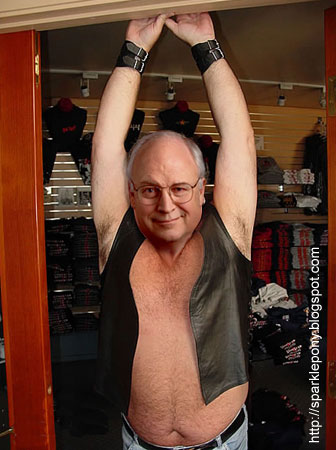The Department of Transportation has been notable during President George W. Bush's eight years term for its astounding failures. The agency has overseen an unprecedented decline in the nation's infrastructure, best typified by the collapse of a major bridge in downtown

The Lower Ninth: Brad Pitt has done more to rebuild infrastructure than the DoT.
Not only will the DoT have to fix those problems to restore itself to its pre-Bush functionality, but a sweeping set of new social, economic and environmental phenomena are facing it: In order to maximize our economic potential and reinvigorate our towns and cities across the country, we need to reconfigure our cities with light rail to make mass transit again feasible (as it was before the postwar Era of the Automobile); connect our dying Midwestern cities to one another with high-speed trains to allow for improved commerce and business (and social) interaction; and stamp out sprawl and reinvigorate the country toward dense, ecologically friendly and socially/culturally progressive transit-oriented development hubs, as David Brooks and others are fast realizing.
Perhaps most importantly, we need to stand with the rest of the world in making oil use a valued good, not a cheap commodity. That means increasing taxes on it to discourage its use (as we do with luxuries, cigarettes, etc.) and account for the damage and effects oil use has (on roads that need repairs due to car use, on the environment, on people's health, etc.). The best way to do that is via a (substantial) increase in the gasoline tax. The gas tax was increased consistently through the 60s, but then the Goldwater Republican Revolution and its acolytes put a stop to that. So for years we've stagnated in that regard. To move us from oil and toward high-tech sustainable solutions -- and to come up with funding for our roads and bridges so they don't collapse and kill us -- we need to tax gasoline like the rest of the world does.
None of these phenomena crept up on us overnight. They're all long-term trends. It's just that America has been utterly stagnant the last eight years and has failed to embrace -- or even acknowledge them. These things are not news for the rest of the world, and we, unfortunately, now need to play catch-up.
Moreover, these represent truly great opportunities to improve our short- and long-term economic prospects; to improve quality of life for millions; to instill people with a newfound civic spirit through mass transit; and to inspire smart kids to become engineers and scientists to work on grand projects -- rather than Wall Street turds. Though these agencies have historically been neglected, there is now, finally, an opportunity and impetus for them to take a world-leading role in advancing new technologies and changing the way we live.

Will LaHood be able to remake the country's infrastructure, transit networks and mode of living?
That said, you have to ask, Is a Republican representative who sat by idly during our infrastructure decline as a 14-year veteran of the House Appropriations Committee the man to do this? Of the articles that major newspapers have published about him, only the WSJ even mentions LaHood's transit creds, noting that his "resume on transport matters was seen as thin." Should it fall to someone who for years lacked the vision, political fortitude or just plain common sense to increase funding for infrastructure or to push for better (or just functional) mass transit to now be the person who remakes our transit system from scratch? Someone with no experience managing a large agency, no vision regarding the work before us, and no common sense to have pushed for any change the last 14 years?






No comments:
Post a Comment